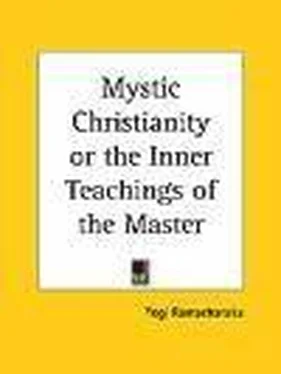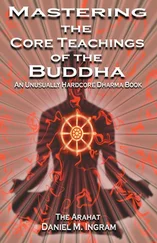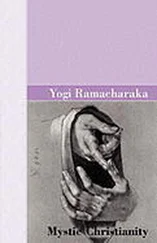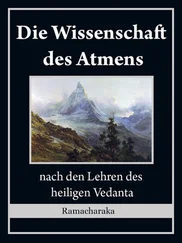Jesus was received with scowling antagonism. The people seemed to say, "Here is this heretical imposter again. He feared to come even to the aid of His dying friend. His power has failed Him and He now stands discredited and exposed!" Then came Martha, who reproached the Master with His indifference and delay. He answered her that Lazarus should rise again, but she doubted His word. Then came Mary, whose grief brought tears even from the Master, who had seen so much of human suffering as to have found his eyes refuse to weep.
Then asked the Master, "Where have you laid him away?" and they took Him to the tomb, followed by the curious mob hungering for the sight of more wonders from the man whom they feared even while hating and reviling Him. Jesus stood before the dreary tomb and bade the men roll away the stone that closed the mouth of the tomb. The men hesitated, for they knew that a corpse lay within, and they even perceived the characteristic odor of the tomb issuing therefrom. But the Master insisting upon it, they rolled away the stone and Jesus stood full in front of the dark opening to the cavern.
He stood there for a few moments wrapt in meditation and showing evidences of strong mental concentration. His eyes took on a strange look, and in every muscle He showed that He was summoning to the task every particle of the power at His command. He was throwing off the matters that had been occupying His mind during the past weeks, that He might hold his mind "one-pointed," as the Oriental occultists term it-that He might concentrate clearly and forcibly upon the task before Him.
Then, arousing His reserve force, in a mighty effort, He cried loudly, in a voice of authority and power, "Lazarus! Lazarus! Come forth!"
The people gasped with horror at this calling forth a corpse which was in the process of disintegration and decay, and a cry of remonstrance went up, but Jesus heeded it not. "Lazarus! Lazarus! Come forth, I command thee!" he cried again.
And then at the mouth of the cavern could be seen something startling. It was a ghastly figure, bound and clad in the grave-clothes of that country, which was struggling to free itself and to move toward the light. It was indeed Lazarus! And, after tearing off the stained grave-clothes which still retained the horrid stench of decaying matter, his body was found to be sweet and clean and pure as that of the infant. Jesus had performed a wonder-work far beyond any manifestation He had heretofore shown to the world.
The excitement occasioned by this crowning wonder, coming to Jerusalem after a lull in which it had thought that the Master had retired into insignificant seclusion, aroused again into activity the authorities, who now determined to make an end to the matter and to suppress this pestilent charlatan once and for all. Raising a decaying corpse from the tomb, indeed! What new fraudulent marvels would He not work next in order to delude the credulous people and to bring them once more around his rebellious standard? The man was dangerous without doubt, and must be put where He could do no harm-and that at once.
Within a few hours after the receipt of news that Lazarus had walked from the tomb, the Sanhedrin, the great Jewish ecclesiastical council, was in session, called hastily by its officers to take vigorous action concerning this impious, heretical imposter who had been allowed to mock at established order and religion for too long a time. He must be quieted ere he arouse the people once more. The Roman authorities were warned by the Jewish ecclesiastics that this dangerous man now approaching the capital claimed to be the Jewish Messiah, and that His aims were to overturn the Temple authorities first, and then establish Himself as King of the Jews, and place Himself at the head of a revolutionary army which would attempt to defy and defeat the rule of mighty Rome herself.
And so all the machinery was set in motion, and the officers of the law were all on the alert to take advantage of the first overt act of Jesus and His followers, and to throw them into prison as enemies of society, religion and of the state. The Roman authorities were agitated at the reports coming to them from the highest Jewish authorities, and were prepared to crush the rebellion at the first sign. The Jewish priests were in solemn convocation and at the instigation of Caiaphas, the high priest of the Jews, they determined that nothing but the death of this false Messiah would put an end to the agitation which threatened to drive them from power and authority. And so the die was cast.
And meanwhile Jesus was resting in Bethany, surrounded by great throngs who were pouring into the place to see Lazarus, and to renew their allegiance to the Master whom they had so basely forsaken. Time-servers ever, the latest miracles had revived their fading interest and waning faith, and they flocked around the Master as noisy, enthusiastic and as full of fulsome praise as ever. And yesterday they had damned Him, and tomorrow they would cry "Crucify Him!" For such is the nature of the multitude of men. Of the multitudes of Jesus' followers, none remained to acknowledge allegiance in His hour of arrest-even among the chosen twelve, one betrayed Him, one denied Him, and _all_ fled away when He was taken captive. And for _such_ the Son of Man lived and taught and suffered. Surely His _life_ was the greatest miracle of all.
THE EIGHTH LESSON. THE END OF THE LIFE WORK.
Resting for a short time before His formal entry into Jerusalem, the Master sought the seclusion of the sparsely settled districts near the wilderness. In and around the village of Ephraim, in Perea, in parts of Galilee, He wandered with the Twelve. But even there He continued His work of healing and teaching.
But even this temporary respite from the inevitable lasted but a short time. Jesus determined to march direct to the seat of the ecclesiastical and temporal authority which was arrayed against Him. And so, just before the coming of the Passover time, He gathered together the Twelve and set out on the final stage of the journey. The pilgrims journeying to the capital were burning with curiosity and excitement concerning this journey of the Master to the home of His foes. Rumors were circulated that He intended to gather His forces together and sweep the enemy from its seats of power. It was known that the Sanhedrin intended to attempt to punish Him, and the people asked why should He move on to face His foes unless He contemplated a fight to the finish?
This belief in His determination caused a revulsion of feeling of the people in His favor, and many who had deserted Him now again gathered around Him. They dreamt again of victory, and scented again an unfailing supply of loaves and fishes. They crowded around Him wishing to be among the victorious host. But He encouraged them not-neither spoke He a word to them. He knew them for the time-servers that they were.
The crowds of Jerusalem hearing of His approach, and moved by curiosity to witness His triumphant entry into the City, flocked around the suburbs through which He would approach. At last the cry went up, "Here He comes!" and to their amazement and disgust the crowd saw Him riding quietly info the City mounted on an ass, without display, pretense or pose. The crowd scattered, sneering and reviling Him. But the pilgrims were becoming more and more enthusiastic, and they strewed His way with palms, shouting, "Blessed be our Messiah! The King of Israel approacheth."
The Master proceeded directly to the Temple and performed the customary rites. So amazed were the authorities by His fearless demeanor, that they deferred laying violent hands upon Him. They feared a trap, and moved cautiously. They even allowed Him to retire to Bethany and spend the night. The next morning He returned to the city and dwelt among His friends there. He attended the Temple regularly, and pursued His work of teaching and healing in its very shadows.
Читать дальше












